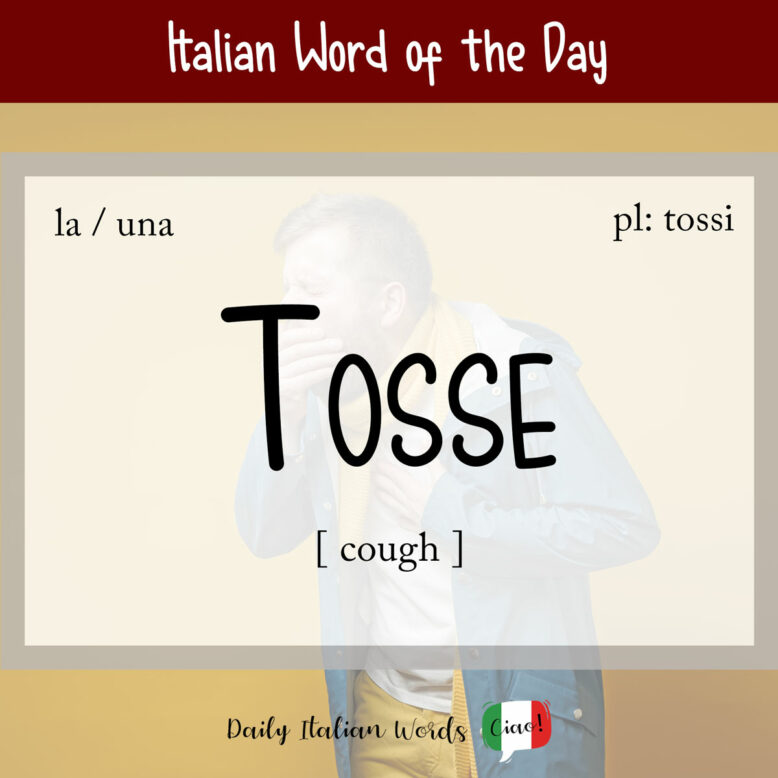A useful word to know in Italian if you’re feeling a bit under the weather is tosse which means cough.

It comes from the Latin tussim from which the verb tossire (to cough) also derives.
Tosse is a feminine noun that takes the following definite and indefinite articles:
- la tosse = the cough
- una tosse = a cough
- le tossi = the coughs
- delle tossi = some coughs
Ho una brutta tosse e il mal di gola.
I have a bad cough and a sore throat.
The kind of cough most closely associated with the coronavirus is a dry cough (tosse secca) but with other illnesses such as bronchitis, you may experience a tosse grassa / produttiva (chesty cough) instead.
Pertosse, the official word for whooping cough in Italian, is a highly contagious bacterial disease that is accompanied by weeks of severe coughing fits (attacchi di tosse). Some more common names for this disease are tosse asinina, tosse canina, tosse convulsa and tosse convulsiva.
The expression colpo di tosse is used to describe a single cough.
Ho sentito un colpo di tosse provenire dalla cucina.
I heard a cough from the kitchen.

To say that you’ve got a cough, you can use the expression mi è venuta la tosse which literally translates as the cough came to me.
Mi è venuta la tosse perché ieri sera sono uscito senza sciarpa.
I got a cough because last night I went out without a scarf.
A small irritating cough can be called a tossetta or tossettina, the diminutive forms of tosse.
Heather Broster is a graduate with honours in linguistics from the University of Western Ontario. She is an aspiring polyglot, proficient in English and Italian, as well as Japanese, Welsh, and French to varying degrees of fluency. Originally from Toronto, Heather has resided in various countries, notably Italy for a period of six years. Her primary focus lies in the fields of language acquisition, education, and bilingual instruction.


